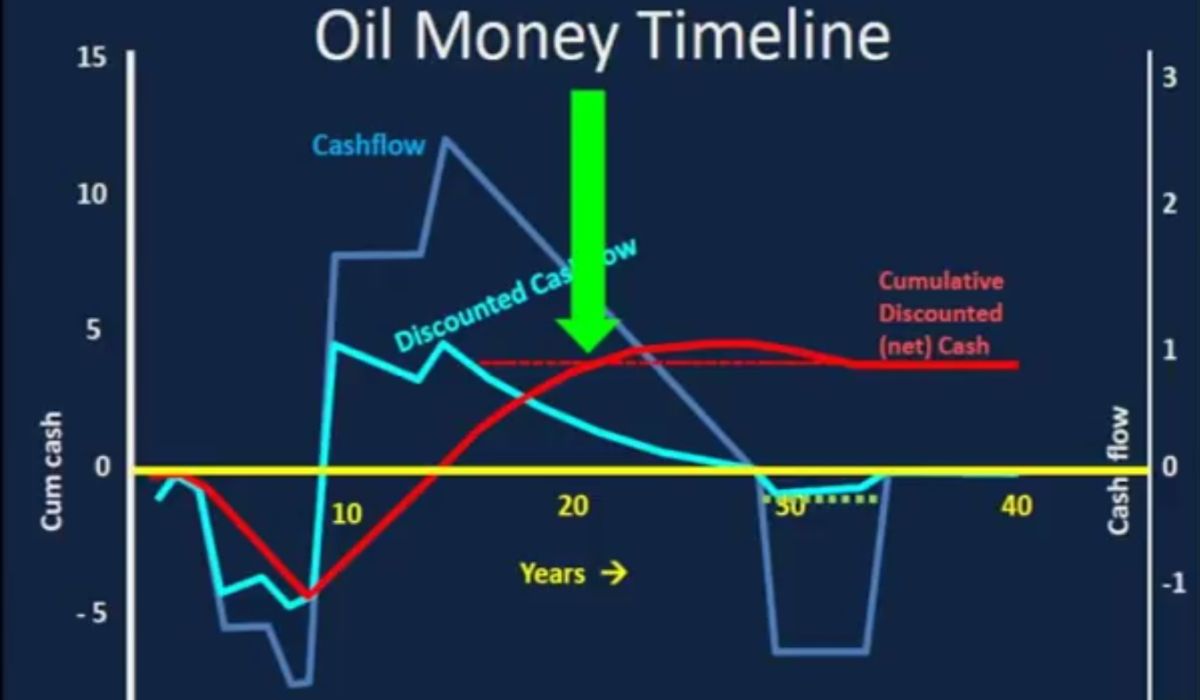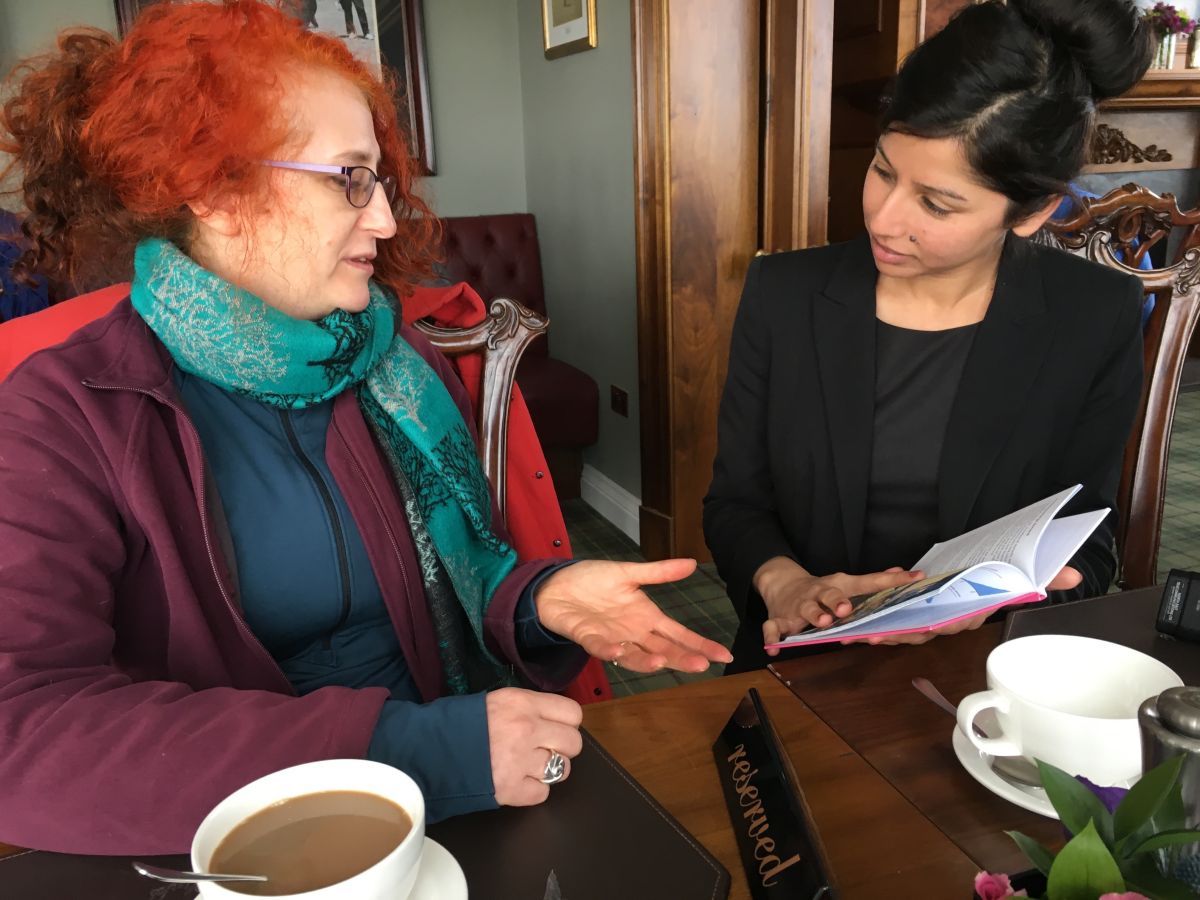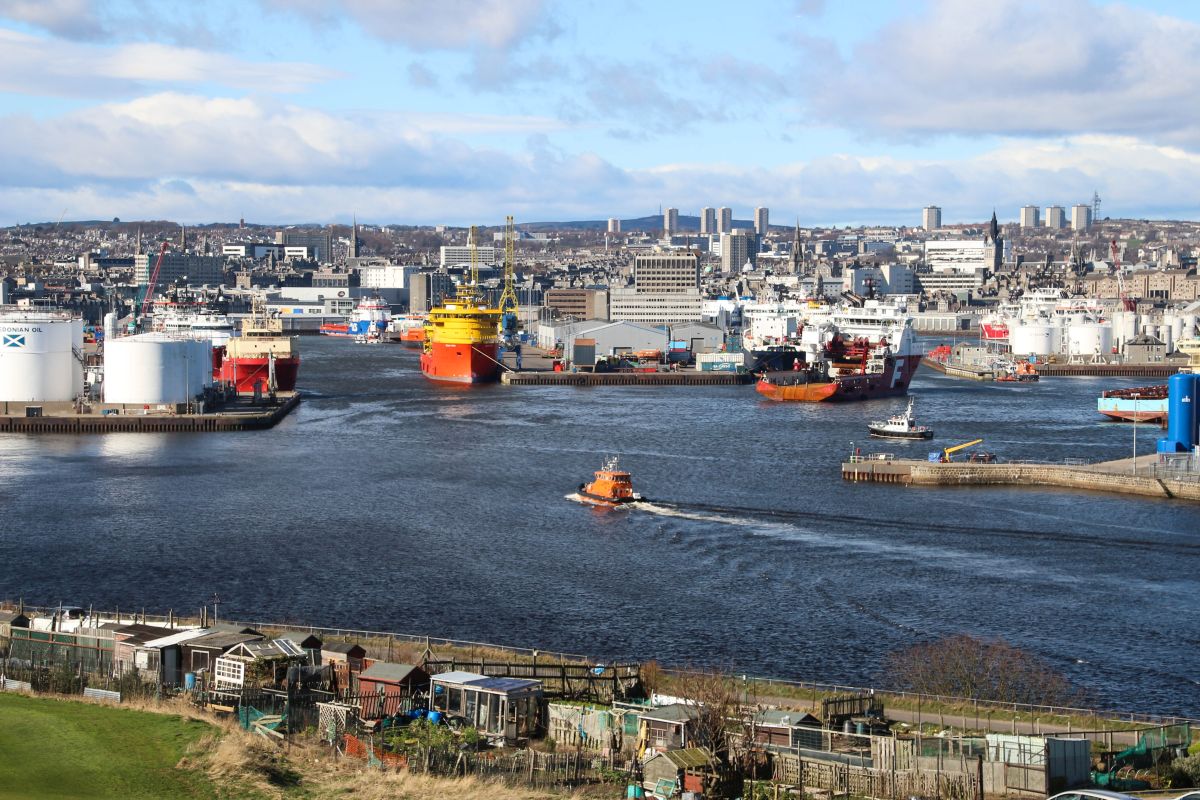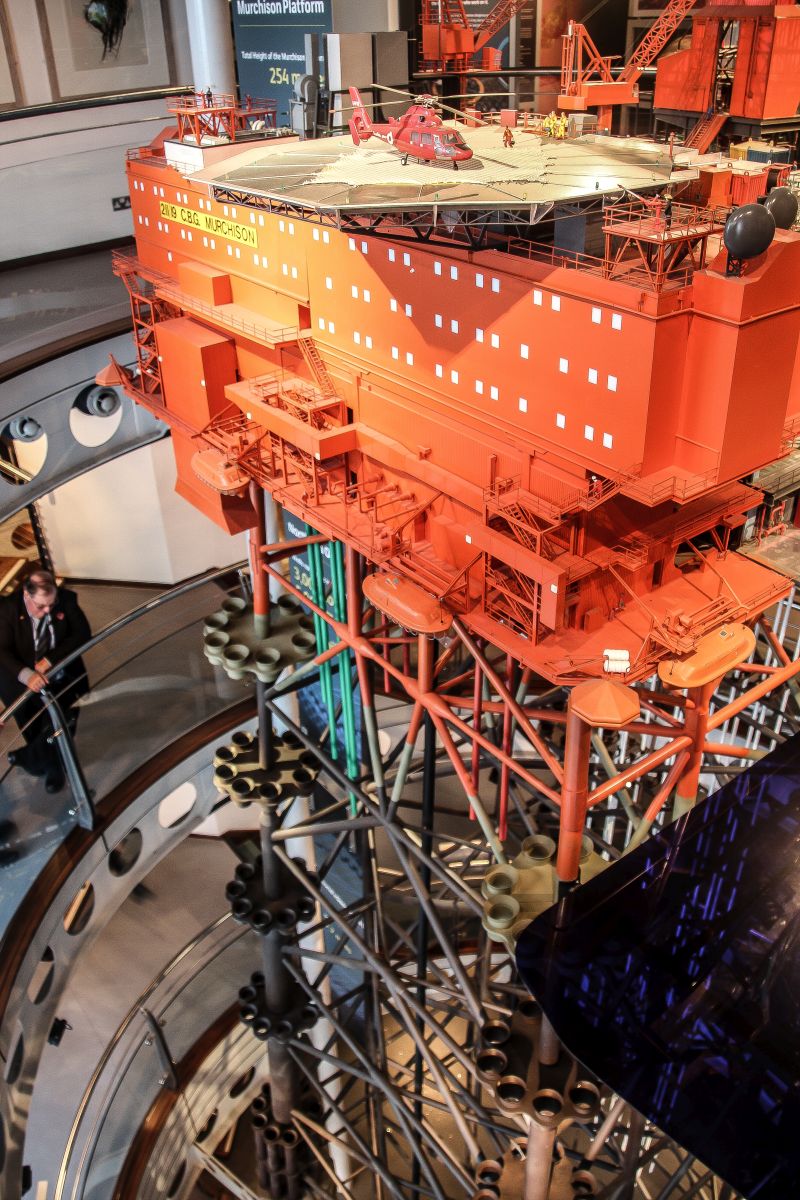Voice’s Old Susannah takes a look over recent events in the ‘Deen and beyond. By Suzanne Kelly.

The answers to the world’s problems have been right under our noses all this time. Not until we elected Teresa May to run UK plc did we find out there were so many ways to solve the world’s problems. Between May and Donald Trump – who has some very interesting means of making America and the whole world Great Again – I think we’re on the brink of world peace. More on that later, but get the champagne ready.
Firstly, apologies for the late running of this service. I’ve been on a journalism course in London for a few days, then I went on holiday.
The Centre for Investigative Journalism threw its annual summer school, which was for the most part very interesting.
There were some people from Bristol who started a newspaper and are selling shares in it. It’s a whole year old and a whole new way to get local communities involved in news. To Fred Wilkinson – maybe we should try something like that in Aberdeen? Just a thought.
Anyway the highlight of the summer school was the Panama Papers. The men who received the Panama Papers leak and brought it to the world, Frederik Obermaier and Bastian Obermayer, gave a talk.
It was kind of boring though – unless you’re interested in minor details like who is really running the world, who’s funding wars and drug production, which countries are starving their citizens while their elite are buying London penthouses, and what companies launder dirty money.
If you for some reason do care about money flowing through a German law firm in Panama to oppressive regimes, shady billionaires and known criminals, and care about this leak which saw prime ministers (Iceland) resign, further FIFA scandal, Putin and his money-moving pals named, this may be of some passing interest.
Obermaier and Obermayer must be pretty lazy journalists; they’ve not even read all the information leaked to them, and instead are just letting anyone look into the leaked documents here. It’s as if they wanted to share information or something. Coming in at 11.5 million documents spanning 40 years and still growing, it might take a few more weeks for them to read everything.
Why bother with dusty old shell companies and billions of pounds when you could be out there looking for a Pokemon Squirtle? For one thing, the Panama Papers database shows there is more than just beauty, glamour and wit to be found in Manhattan’s Trump Towers.
Someone operates out of Donald Drumpf’s building a wee company called Concord International Investments. This has a wee related company, Concord Consultant Services Ltd. This small enterprise, operating from the British Virgin Islands, has some interesting directors. There’s Sheik Aly Hafiz Wahba (apparently a Saudi minister), and, er. the Isis Investment Group.
The Concord lot are tied into a company called Barfield which operates down under.
Also this summer, I’ve been trying to read up on science a bit.
Its registered address is shared with a whole host of interesting nominee companies.
I could go on – and will do if I can ever unravel it all.
But I think we can agree on one thing: even if Mr Drumpf is not directly involved in any of these companies operating out of his building (let’s face it, you might not even know who operates out of your flagship premises if you’re a mere real estate moghul), it shows that there is no bias against people from other cultures in the Trump world. Well done Mr T.
‘What do any of these companies and people do?’ you might ask. I’m sure they must do something more than transfer money around from place to place (and let’s face it, that’s hard work itself as we all know). If I ever find out, I’ll let you know. So, hunt your Pokemon by all means. Perhaps someone out there however might like to spend some time chasing down the rich and powerful using the Panama Papers leak. Just a thought.
Also this summer, I’ve been trying to read up on science a bit. It must be getting more important and popular, as there are more TV-related science programmes on now.
Did you know some people think the world is even more than 6,000 years old? I read this week that the woolly mammoths might have died from thirst. It seems when the climate was changing, their drinking water supplies started to dwindle and get contaminated by all the critters trying to get water. They all competed for the dwindling water, trampling the existing resources such as food plants into the ground, and there were too many of them to eat and drink in a world which was changing.
I mean, it’s kind of interesting to read about that kind of stuff I guess – but it’s not as if we can really learn much which is useful to us now about overpopulation in a species using up its food and other resources to the point of no return. And that brings me back to how the world’s been saved and why we should be grateful.
Climate Change: (Old English proper compound noun) Outdated fashionable notion the earth, biodiversity, and life in general were under threat of some kind
Climate Change Problem Solved! Result!
Not even a month into her stewardship of the United Kingdom, Teresa May has in one fell (very fell) swoop fixed the climate change problem: she closed the former ‘Department for Energy and Climate Change’.
we’re probably going to start using more coal and ‘shale gas extraction’
Sensibly, it’s now part of the much more important new entity ‘Department for Business, Energy and Industrial Strategy’.
I can’t tell you how happy I am.
Simple solutions to complex problems. Worried about Cimate Change? Answer: sweep it under the rug – or at least into another department which acknowledges business and energy are more important than the climate changing.
There are a few climate change denier deniers out there. They’ve had some hurtful words for our new PM such as:
“Stephen Devlin, an environmental economist at the New Economics Foundation (NEF), said the department’s abolition was “a terrible move by our new Prime Minister”.
He said it appeared to signal “a troubling de-prioritisation of climate change by this government”.
“Tackling climate change is an era-defining challenge that must direct and determine what industries we develop, what transport infrastructure we construct, how we manage our land and what our diets look like. It requires a central co-ordinated strategy; if we leave it to the afterthoughts of other departments we will fail,” he said.
“This reshuffle risks dropping climate change from the policy agenda altogether – a staggering act of negligence for which we will all pay the price.”
– http://www.independent.co.uk/environment/climate-change-department-killed-off-by-theresa-may
But don’t let the alarmists worry you. It’s not as if there is any history of our Conservatives appeasing businesses, and if climate change were lucrative – sorry – important, we’d probably get round to doing something about it.
Instead we’re probably going to start using more coal and ‘shale gas extraction’. This is great, because it means more jobs. Furthermore, the article has over 800 comments from people calling climate change denier deniers ‘weirdos, cranks and lefties’ – so that’s any scientific or environmental campaigners’ told.
If you happen to look at statistics that show the world is warming at the same time our fossil fuel consumption is increasing, that the Maldives risk flooding (as many other places), that there are freak storm systems defying known patterns, then just remember – the world changes a lot, there are other things to think about (Pokemon, celebrity baking on ice). If there were a problem, Teresa May would be on it. So – rejoice! Problem solved.
Terrorism: (Modern international noun) The belief that violence and shock are the best means to win arguments, gain power and destroy opposition.
Terrorism – that’s so yesterday. We’re going to elect Donald Trump president, and he’s already itching to know why we just haven’t nuked the terrorists. With an incisive mind like that, should the unthinkable happen and he loses the election, we could always put him out as a diplomat. After all, talking tough is the only thing that’s respected, and we must stop being weak. Nothing says tough like dropping a nuclear bomb or two.
Once we let President Drumpf nuke a few of the terrorist strongholds (London, Paris, Tehran, Nigeria, Palestine, New York, Germany), then people will start behaving. No longer will we have people willing to die to exert control over the freedoms and behaviours of others. No, by then we’ll all be ruled by the Trump convention mentality and will conform if we know what’s good for us.
Women will stop all this feminist nonsense and realise the fulfilment they can have as being ‘a great piece of ass’ as Trump would say. Mexicans will dutifully stay put, and happily earn their pesos by sewing Trump neckties. The Chinese will stop ‘raping America’ economically and realise America is Great Again. Trump’s right: we’ve over 7,000 nuclear weapons and we’ve not used a single one. That’s hardly making good economic sense, is it?
The source for this claim is MSNBC news personality Joe Scarborough:
“Several months ago, a foreign policy expert went to advise Donald Trump,” Scarborough said.
“And three times he asked about the use of nuclear weapons — three times he asked. At one point, ‘If we have them, why can’t we use them?’”
The Trump camp dismisses this as untrue. Scarborough fair? Not to Trump supporters.
Time Magazine also disputes the claim Trump asked about using nukes. In a recent piece it suggested that he doesn’t want to use them. Here’s a quote:
““I will have a military that’s so strong and powerful, and so respected, we’re not gonna have to nuke anybody… I will have a military that’s so strong and powerful, and so respected, we’re not gonna have to nuke anybody,” he said, adding that he would be “amazingly calm under pressure.” Still, Trump told the magazine he wouldn’t get rid of the nuclear weapons because “other people have them” and are “unfortunately gaining more and more.” “It is highly, highly, highly, highly unlikely that I would ever be using them,” he added.”
Well, if Trump says it’s ‘highly, highly, highly, highly unlikely’ that he’d ever nuke another country, that’s good enough for me. After all, he has proven time and again he’s a man of his word. If he does drop a bomb, we can not only be sure that the act will dissuade any further terrorism – we can be sure it will be the biggest, best, strongest, most respected bomb in the world.
With a Trump White House ensuring world peace by nuking some bad guys, and climate change abolished by Teresa May, I think a celebration is in order. I’ll either be in BrewDog having one or two, or in an underground bunker stockpiling water and Monsanto vegetable seeds.
Next week? If we are still here, more Panama Papers and local news.
- Comments enabled – see comments box below. Note, all comments will be moderated.
[Aberdeen Voice accepts and welcomes contributions from all sides/angles pertaining to any issue. Views and opinions expressed in any article are entirely those of the writer/contributor, and inclusion in our publication does not constitute support or endorsement of these by Aberdeen Voice as an organisation or any of its team members.]
 On March 25th Aberdeen Climate Action and Aberdeen And District CND jointly sponsored a meeting on the above.
On March 25th Aberdeen Climate Action and Aberdeen And District CND jointly sponsored a meeting on the above.








